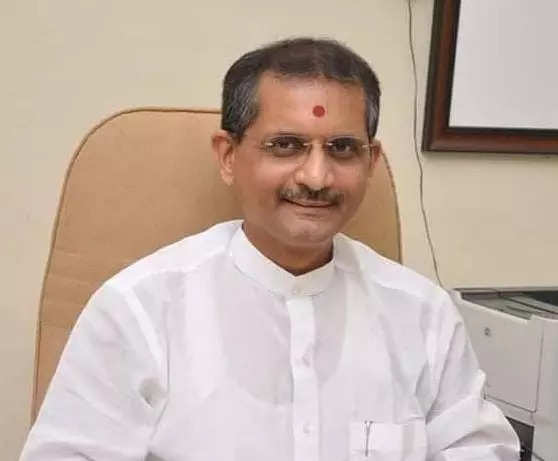- Introduction: The Pinnacle of UPSC Leadership: At the helm of the Union Public Service Commission (UPSC) stands the Chairman, a figure of paramount importance in guiding the destiny of India’s civil services. This guide navigates through the pivotal role of the UPSC Chairman, shedding light on the individuals who have held this esteemed position in 2022 and the anticipated leaders who will shape the future of UPSC in 2023.
- The Role of UPSC Chairman: A Steward of Meritocracy: The Chairman of UPSC is not merely a titular head but a steward of meritocracy, entrusted with the responsibility of overseeing the fair and transparent selection of candidates for the country’s civil services. This section delves into the multifaceted role of the UPSC Chairman, emphasizing their influence on the examination process, policy formulation, and the commission’s broader mandate.
- UPSC Chairman Selection Process: A Merit-Based Appointment: The selection of a UPSC Chairman is a meticulous process rooted in meritocracy. This part provides insights into how the Chairman is appointed, exploring the criteria that underpin the selection, the qualifications required, and the transparent process aimed at ensuring the appointment of individuals with impeccable credentials and a deep understanding of the civil services landscape.
- UPSC Chairman in 2022: A Profile of Leadership: In 2022, the UPSC Chairman played a pivotal role in steering the commission through the challenges and opportunities of the year. This segment offers a profile of the UPSC Chairman in 2022, highlighting their background, expertise, and notable contributions to the commission during their tenure.
- Key Initiatives and Reforms: Shaping the UPSC Landscape: The UPSC Chairman is often at the forefront of introducing key initiatives and reforms aimed at enhancing the efficiency and effectiveness of the civil services examination. This section explores the notable initiatives and reforms spearheaded by the UPSC Chairman in 2022, shedding light on their impact on the examination process and the aspirants.
- Challenges Faced by UPSC Chairman in 2022: Navigating Complexity: Leading the UPSC comes with its set of challenges, including evolving examination patterns, societal expectations, and the need for technological integration. This part discusses the challenges faced by the UPSC Chairman in 2022, providing insights into how they navigated complexities to uphold the commission’s commitment to integrity and excellence.
- Transition to UPSC Chairman 2023: Anticipating New Leadership: As the tenure of the UPSC Chairman in 2022 concludes, the anticipation builds for the individual who will assume this significant role in 2023. This segment explores the transition process, shedding light on the expectations, qualifications, and leadership qualities that aspirants and stakeholders may look for in the upcoming UPSC Chairman.
- Future Vision: Shaping the Path Ahead: The future UPSC Chairman in 2023 will play a pivotal role in shaping the path ahead for the commission. This section delves into the visionary leadership expected from the upcoming Chairman, emphasizing their role in aligning the UPSC with contemporary challenges, technological advancements, and the evolving needs of India’s civil services.
- Public Perception and Accountability: The Chairman’s Connection with Society: The UPSC Chairman holds a position of public trust, and their actions and decisions are closely scrutinized. This part examines the connection between the UPSC Chairman and society, exploring the importance of transparency, accountability, and effective communication in maintaining public trust in the commission’s leadership.
- Legacy and Contributions: Assessing the Impact: Each UPSC Chairman leaves behind a legacy shaped by their contributions, initiatives, and leadership style. This segment assesses the impact of the Chairman’s tenure, examining how their vision and decisions have influenced the trajectory of the UPSC and contributed to the broader landscape of civil services in India.
- Upholding Ethical Standards: The Moral Compass of UPSC Leadership: The UPSC Chairman serves as the moral compass of the commission, upholding ethical standards and ensuring the sanctity of the examination process. This section explores the Chairman’s role in fostering a culture of integrity, fairness, and adherence to ethical principles within the UPSC.
Conclusion
In the realm of civil services, the UPSC Chairman stands as a steward of meritocracy, steering the destiny of India’s administrative landscape. The guide has delved into the pivotal role of the UPSC Chairman, examining their selection process, profiling the leadership in 2022, and anticipating the transitions and expectations for 2023. From key initiatives and reforms to challenges faced and the enduring legacy left behind, the Chairman’s influence is profound. As the moral compass of UPSC leadership, their commitment to ethical standards ensures the integrity of the examination process, contributing to the commission’s enduring impact on the nation.
Five FAQs
-
What is the role of the UPSC Chairman?
- The UPSC Chairman is a steward of meritocracy, overseeing the fair and transparent selection of candidates for India’s civil services, influencing policy formulation, and guiding the commission’s broader mandate.
-
How is the UPSC Chairman selected?
- The selection of a UPSC Chairman is a merit-based process, with criteria ensuring individuals with impeccable credentials and a deep understanding of the civil services landscape.
-
What were the key initiatives and reforms led by the UPSC Chairman in 2022?
- The guide explores the initiatives and reforms spearheaded by the UPSC Chairman in 2022, highlighting their impact on the civil services examination.
-
What challenges did the UPSC Chairman face in 2022?
- Challenges faced by the UPSC Chairman in 2022, including evolving examination patterns and societal expectations, are discussed, providing insights into how they navigated complexities.
-
What is the connection between the UPSC Chairman and society?
- The guide examines the connection between the UPSC Chairman and society, emphasizing transparency, accountability, and effective communication in maintaining public trust in the commission’s leadership.

